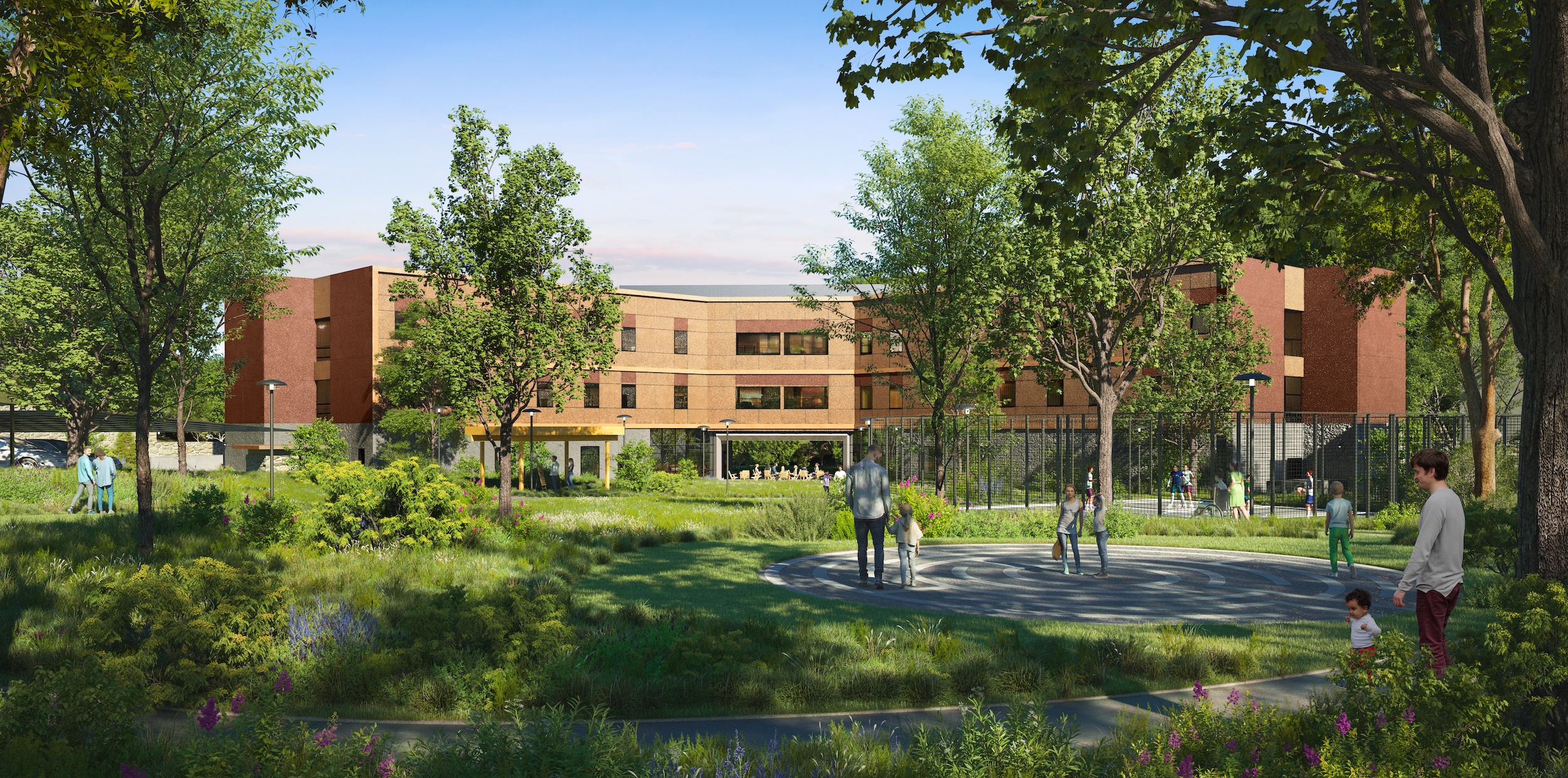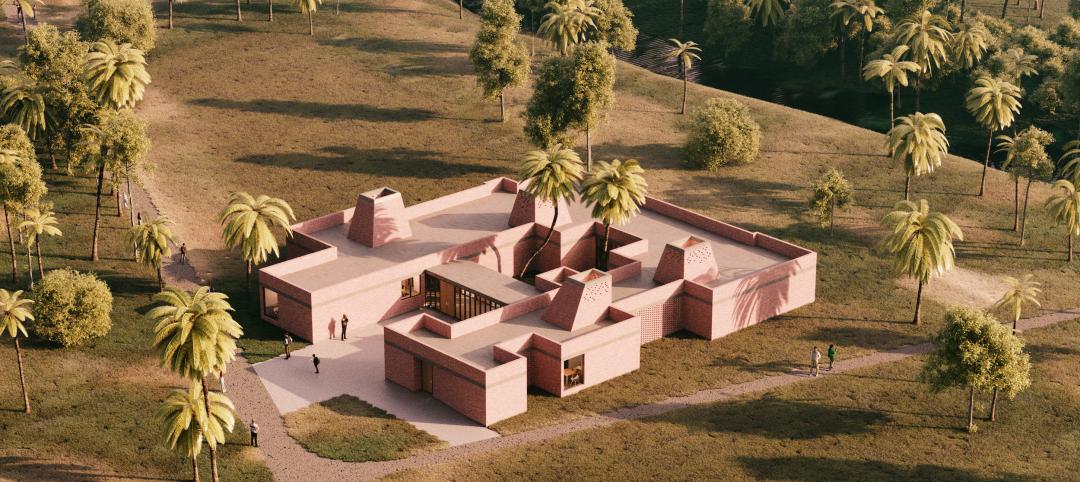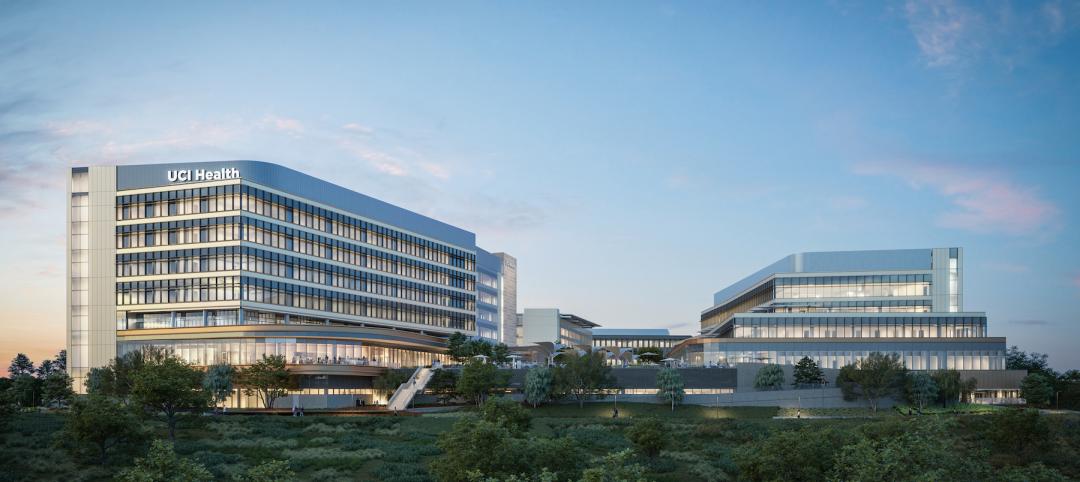Shortly before Mental Health Awareness Month in May, development and construction firm Skanska announced the topping out of California’s first behavioral health facility—and the largest in the nation—to target net zero energy. Located in Redwood City, San Mateo County, Calif., the 77,610-sf Cordilleras Health System Replacement Project is slated for completion in late 2024.
The campus will comprise four single-story mental health rehabilitation centers, each accommodating 16 clients, as well as a three-story co-housing building for 57 residents. With CannonDesign as the design architect, the buildings are arrayed around a central open space with sheltered outdoor seating, community gardens, and recreation areas. Cordilleras also will provide administration, medical, dining, and maintenance services, plus other staff and visitor services.
The project will generate onsite power by installing solar panels on the buildings’ roofs and the parking areas, offsetting the energy usage onsite. Through a design and modeling process, the project team was able to minimize the site’s power usage while maintaining occupant comfort. Cordilleras is targeting a Silver LEED certification and has the potential to achieve Gold.
Located on a wooded hillside south of San Francisco, Cordilleras preserves the existing natural environment and features biophilic design to support therapeutic healing. As a resilient facility, Cordilleras will be able to continue operations in the event of a natural catastrophe.
“More than 51 million Americans—approximately one in five adults—live with mental illness. As healthcare builders and designers, we can directly combat the stigma around seeking care in what was traditionally seen as cold, sterile treatment environments, as we expect to see increased demand for behavioral health facilities,” Lindsay Corotis, vice president/account manager, Skanska USA Building, said in a statement.
The original facility was constructed as a tuberculosis hospital in 1952 and adapted for behavioral health in 1978.
On the Building Team:
Owner: San Mateo County
Design architect and architect of record: CannonDesign
MEP engineer: CannonDesign
Structural engineer: KPFF
Construction: Skanska USA Building
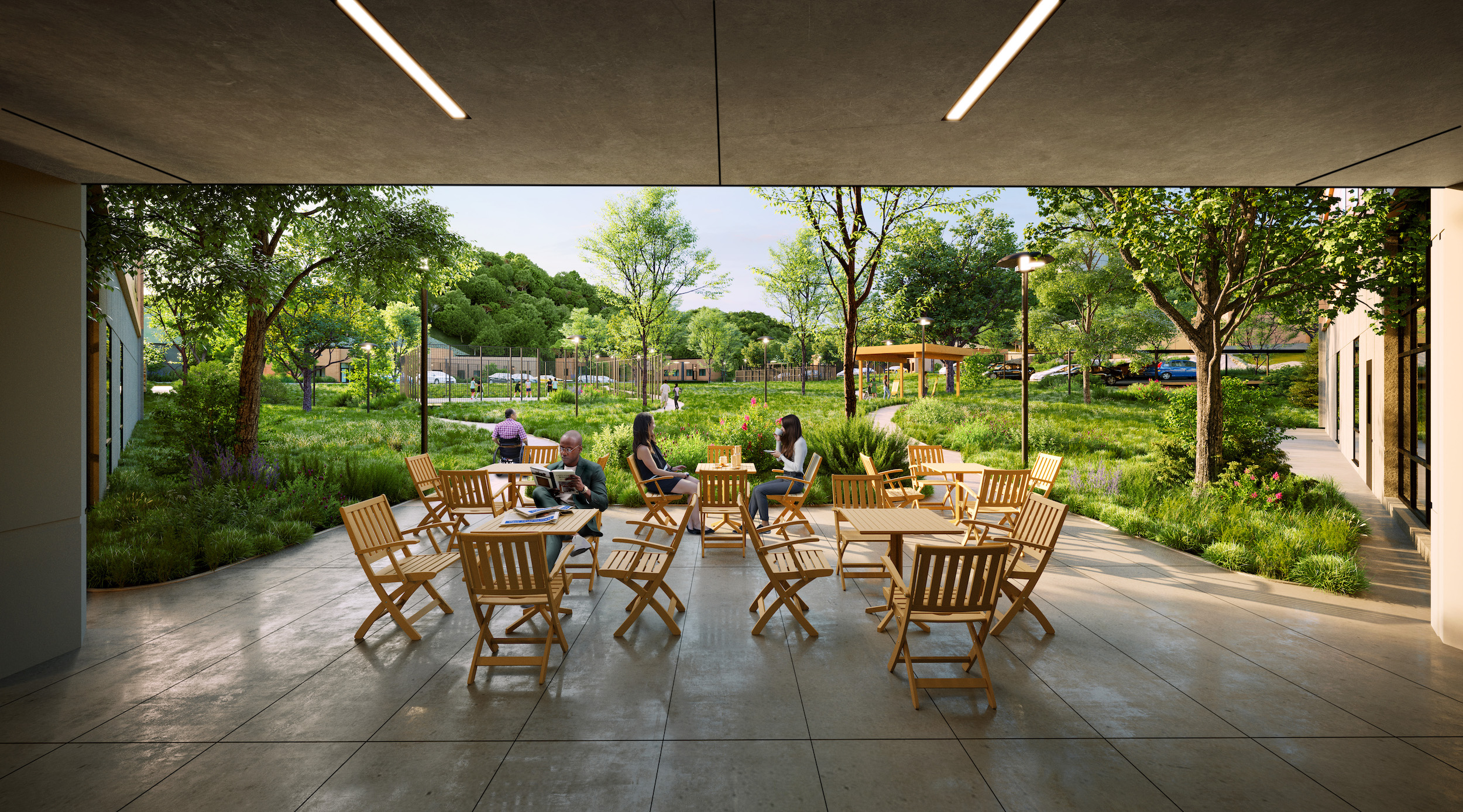
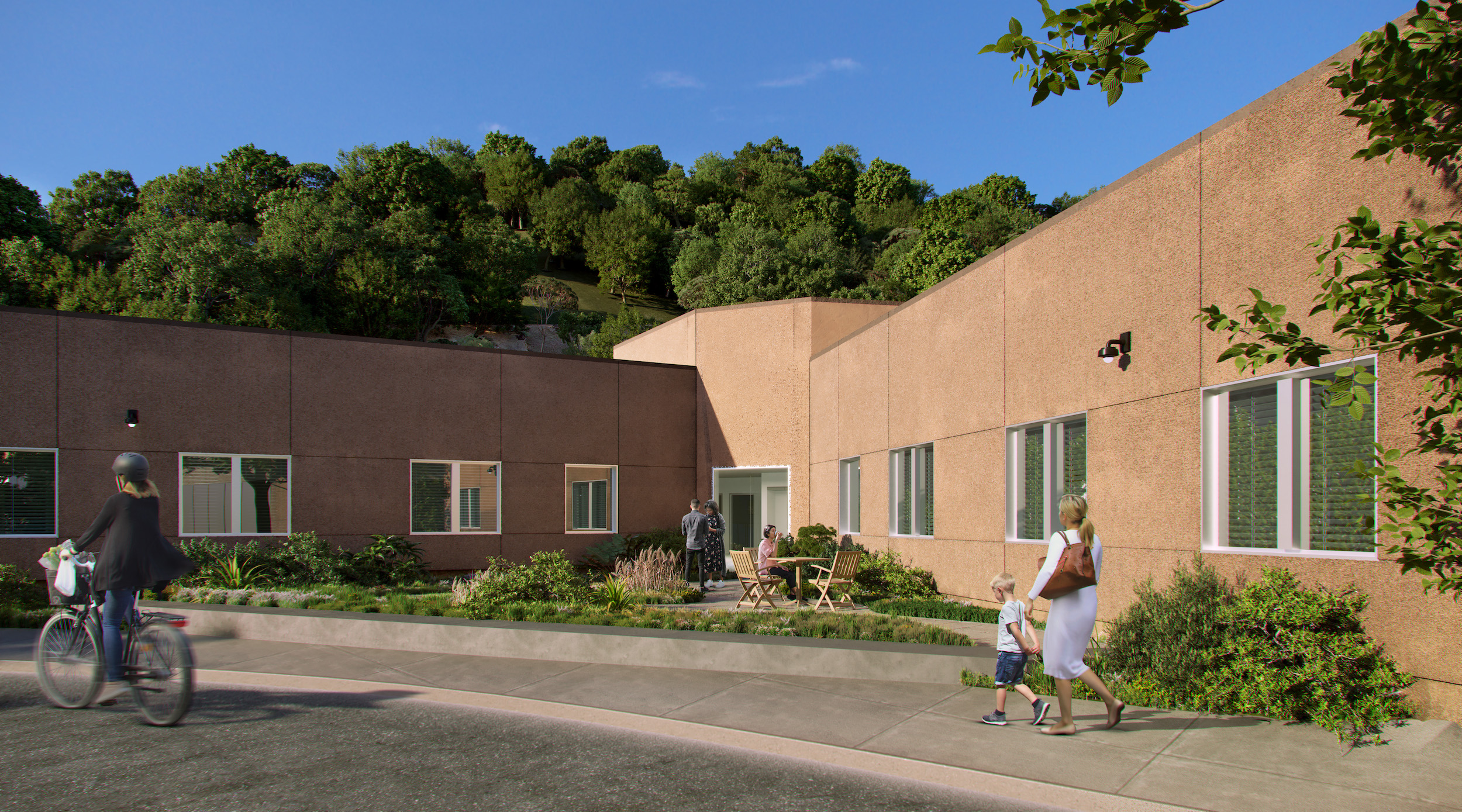
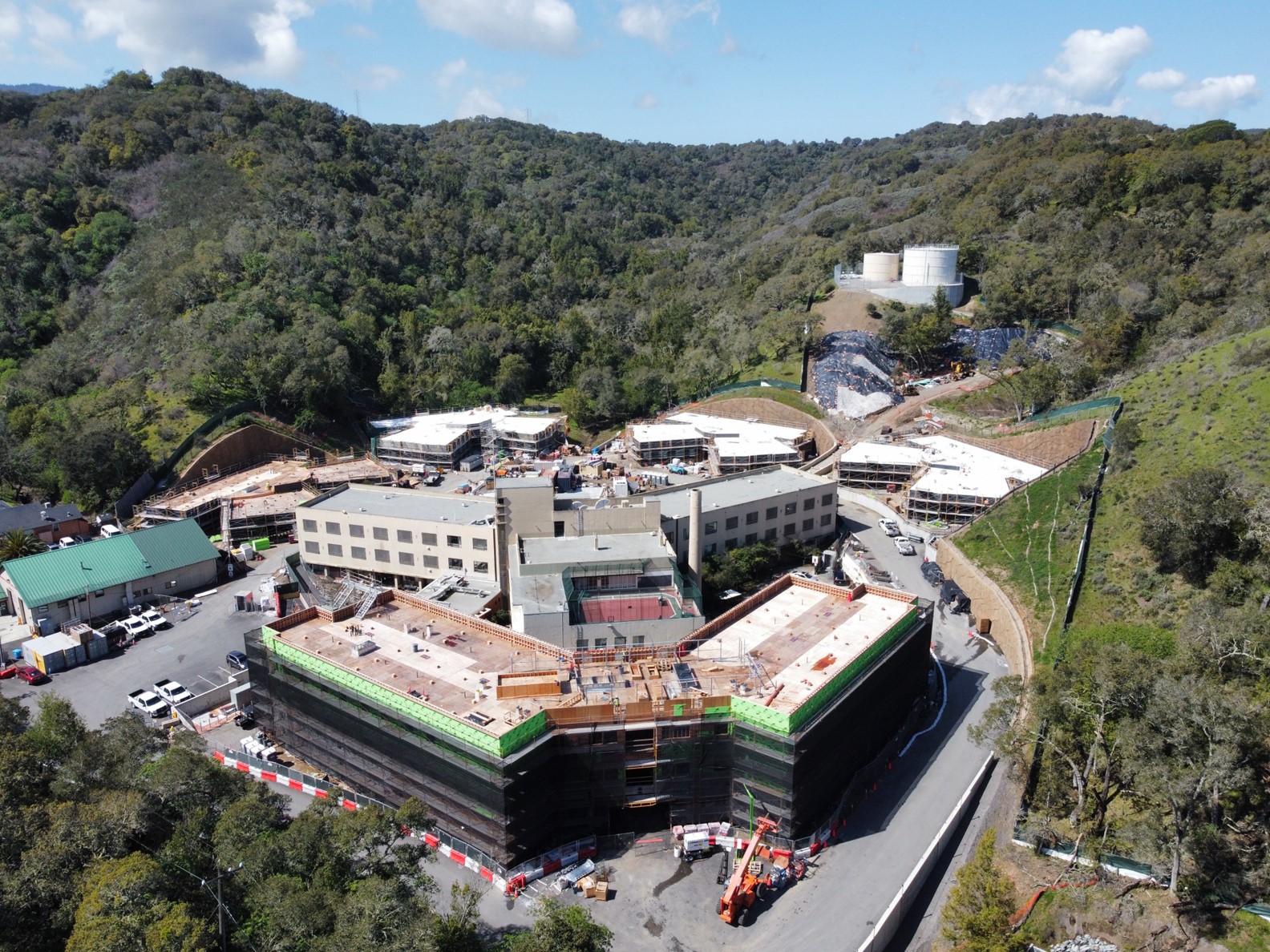
Related Stories
Sustainability | Apr 20, 2023
13 trends, technologies, and strategies to expect in 2023
Biophilic design, microgrids, and decarbonization—these are three of the trends, technologies, and strategies IMEG’s market and service leaders believe are poised to have a growing impact on the built environment.
Design Innovation Report | Apr 19, 2023
HDR uses artificial intelligence tools to help design a vital health clinic in India
Architects from HDR worked pro bono with iKure, a technology-centric healthcare provider, to build a healthcare clinic in rural India.
Healthcare Facilities | Apr 17, 2023
UC Irvine takes sustainability to new level with all-electric medical center
The University of California at Irvine (UCI) has a track record for sustainability. Its under-construction UCI Medical Center is designed, positioned, and built to preserve the nearby San Joaquin Marsh Reserve, to reduce the facility’s solar gain by 85%, and to be the first medical center in the country to operate on an all-electric central plant.
Healthcare Facilities | Apr 13, 2023
Healthcare construction costs for 2023
Data from Gordian breaks down the average cost per square foot for a three-story hospital across 10 U.S. cities.
Healthcare Facilities | Apr 13, 2023
Urgent care facilities: Intentional design for mental and behavioral healthcare
The emergency department (ED) is the de-facto front door for behavior health crises, and yet these departments are understaffed, overwhelmed, and ill-equipped to navigate the layered complexities of highly demanding physical and behavioral health needs.
Urban Planning | Apr 12, 2023
Watch: Trends in urban design for 2023, with James Corner Field Operations
Isabel Castilla, a Principal Designer with the landscape architecture firm James Corner Field Operations, discusses recent changes in clients' priorities about urban design, with a focus on her firm's recent projects.
Market Data | Apr 11, 2023
Construction crane count reaches all-time high in Q1 2023
Toronto, Seattle, Los Angeles, and Denver top the list of U.S/Canadian cities with the greatest number of fixed cranes on construction sites, according to Rider Levett Bucknall's RLB Crane Index for North America for Q1 2023.
Contractors | Apr 10, 2023
What makes prefabrication work? Factors every construction project should consider
There are many factors requiring careful consideration when determining whether a project is a good fit for prefabrication. JE Dunn’s Brian Burkett breaks down the most important considerations.
Architects | Apr 6, 2023
New tool from Perkins&Will will make public health data more accessible to designers and architects
Called PRECEDE, the dashboard is an open-source tool developed by Perkins&Will that draws on federal data to identify and assess community health priorities within the U.S. by location. The firm was recently awarded a $30,000 ASID Foundation Grant to enhance the tool.
Sustainability | Apr 4, 2023
NIBS report: Decarbonizing the U.S. building sector will require massive, coordinated effort
Decarbonizing the building sector will require a massive, strategic, and coordinated effort by the public and private sectors, according to a report by the National Institute of Building Sciences (NIBS).


